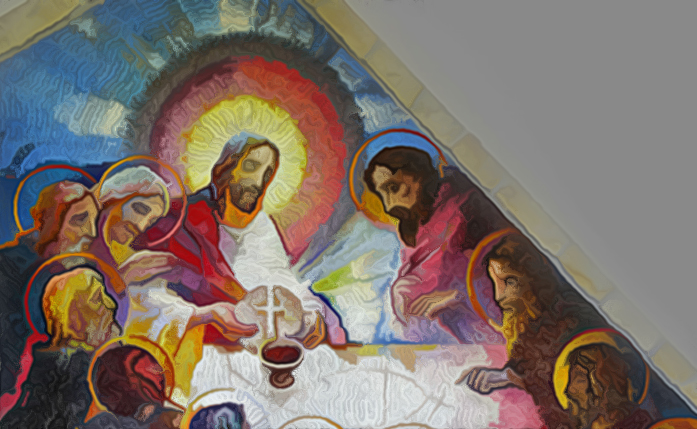
There once lived a peasant in Crete who deeply loved his life. He enjoyed tilling the soil, feeling the warm sun on his naked back as he worked the fields, and feeling the soil under his feet. He loved the planting, the harvesting, and the very smell of nature. He loved his wife, and his family and his friends, and he enjoyed being with them, eating together, drinking wine, talking, and making love. One day he sensed that death was near. What he feared was not what lay beyond, for he knew God’s goodness and had lived a good life. No, he feared leaving Crete, his wife, his children, his friends, his home, and his land. Thus, as he prepared to die, he grasped in his right hand a few grams soil from his beloved Crete and he told his loved ones to bury him with it. He died, awoke, and found himself at heaven’s gates, the soil still in his hand and heaven’s gate firmly barred against him. Eventually, St. Peter emerged through the gates and spoke to him: “You’ve lived a good life, and we have a place for you inside, but you cannot enter unless you drop that handful of soil. You cannot enter as you are now!” The man was reluctant to drop the soil and protested: “Why? Why must I let go of this soil? Indeed, I cannot! What’s inside of those gates, I have no knowledge of. But this soil, I know … it’s my life, my work, my wife and kids, it’s what I know and love, it’s Crete! Why should I let it go for something I know nothing about?” Peter left him, closing the large gates behind. Several minutes later, the gates opened a second time, and this time, from them. emerged a young child. She did not try to coax the man into letting go of the soil in his hand. She simply took his hand, and as she did, it opened, and the soil of Crete spilled to the ground. She then led him through the gates. A shock awaited him as he entered heaven … there, before him, lay all of Crete! Fr. Rolheiser writes that when Jesus links the idea of breaking to the Eucharist, the rending and breaking down that he is talking about has to do with narcissism, individualism, pride, self-serving ambition, and all the other things that prevent us from letting go of ourselves so as to truly be with others. Whenever anyone looks at a group photo, he or she always first looks how he or she turned out and, only afterwards, considers whether or not it is a good picture of the group. Breaking the eucharistic bread has a whole lot to do with looking first at how the group turned out.
